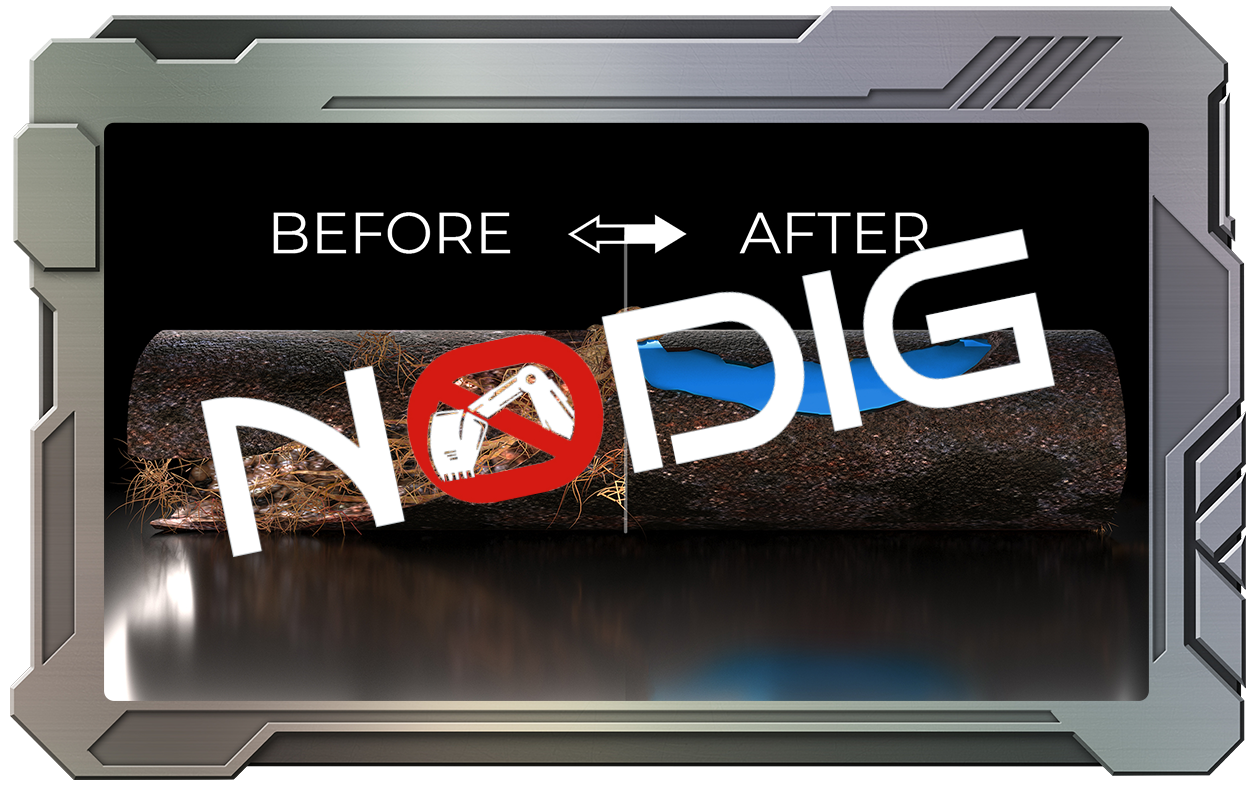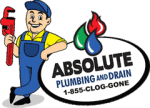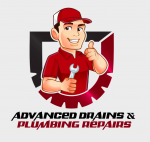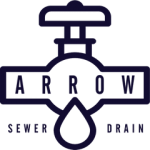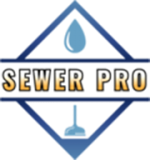
People believe that clogs are the annoying slow drain in sinks and toilets that require plunging. Although these are annoying, they are not as bad as when a main sewer line clogs.
The underground main sewage line is where all drainage pipes run. This is where all the other drains converges and drainage connects.
You won't have proper drainage until your sewer pipe is fixed, which might cost thousands of dollars. Fortunately, the warning indications of a broken sewer line are clear.
It's important to recognize the signs, including slow-draining fixtures, sewage odors, and standing water. Homeowners should contact a plumber for an inspection and sewer line repair.
What Are the Signs of a Collapsed Sewer Line?
Modern sewer lines are a marvel of engineering. But there are a lot of instances when the main sewer pipe clogs or there is a sewer line breakage within the sanitary sewer.
Even worse, older sewer lines are also more prone to damage like this. These nuisance clogs will be a major project and a health hazard.
The following eight indicators will help you determine whether you have a main sewer line clog or is broken:
1. Slow Drain or Frequent Backups of Toilets and Sinks
One of the most common signs of a collapsed sewer line is slow draining or backing up of toilets and sinks.
There could be some sewage backup from your toilet when the drain is clogged. Compared to if the bathroom sink were clogged, you are more likely to call a plumber since it is disgusting.
Frequent backups in fixtures like the bathtub, toilet, and kitchen sink are due to a clogged sewer line. Sewage backups will likely be first noticed in areas near the main sewer line.
2. Foul Odors Coming From Drains
Another sign of a collapsed sewer line is the presence of foul odors coming from all the drains. A broken sewer line can cause waste to become trapped, leading to an unpleasant sewer odor.
You know you've got a cracked drain pipe if you can smell sewer gas close to your property, which helps locate the sewer line. A sewer system should be airtight throughout, except for vent stacks on your roof
Sewer gas should never be present, and if it is, it indicates that your sewer line has a crack or opening. Sewage backups into other drains are smelly, disgusting, and a health hazard.
3. Multiple Fixtures Clogs
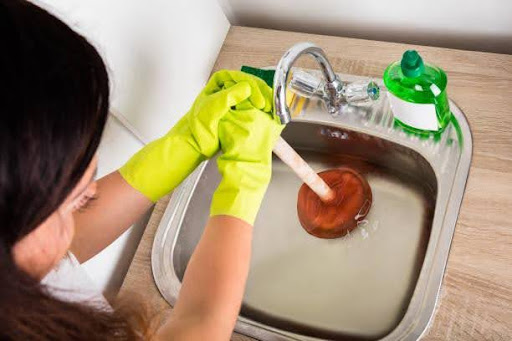
Every drain is affected by the main sewage line collapse because all the drainage is connected. Numerous fixtures may clog if the water has nowhere to go.
If you take a bath, but the water doesn't drain quickly, and your toilet starts to bubble, air or water may be rushing into the toilet.
It could also manifest in your bath having a slow drain when trying to drain water, followed by the toilet, bathroom faucet, and other drain outlets. This can cause bellies in your sewer line!
4. Your Drains May Seem to be Haunted
When a main sewer line collapses, it might have surprising and disturbing ways to affect your drain system.
Your commercial property's or company's drainage system is an intricate web of connections, bends, and turns your drains rely on.
Fixtures may emit strange sounds or smells or bubble up sewage or water with a broken sewer pipe. It's only air rushing back, so don't worry if your toilet starts bubbling.
If you hear gurgling sounds from your bathroom, it could be one of the signs of a collapsed sewer line. A collapsed sewer line can cause a blockage, leading to gurgling sounds.
5. Unexpected Lush Green Patches in the Lawn Over the Sewer Line
If you notice unexpected lush green patches in your lawn over your sewer line, it could be one of the signs of a collapsed sewer line.
A certain patch of grass will continue to grow more quickly than the rest because having an area of your lawn saturated and constantly soaked with water will do this.
A collapsed sewer line can cause a buildup of wastewater and organic matter, leading to lush green growth as the grass slowly absorb the stagnant water.
6. Sagging or Settling of the Dirt Surrounding the Sewer Line
A broken sewer system can cause your lawn to get greener and smell bad. As a result, your yard may become inaccessible until the broken sewage line is fixed.
Thanks to the excess water from the collapsed pipe, the surrounding soil will become drenched, which results in a soggy lawn.
Without the Lawn draining properly, the surrounding dirt absorbs the water until it can no longer become a collapsed area, turning into a sinkhole.
7. Insect and Rodent Infestation
In that regard, an unexpected rise in insect and rodent activity may indicate a clogged sewer line. Rodents can enter your home through the tiniest gaps and can move quickly.
The same is true for insects and sewer flies, which can breed in still water and squeeze through a hole in a drain pipe to increase in number quickly.
The diseases they spread can be anything from a minor cold to serious health problems.
8. Broken Slabs and Wall Cracks
The building will often develop cracks in the concrete slab and supporting walls as they settle and the ground shifts beneath them.
However, if your business or commercial property is developing new cracks, it may be because you have a broken sewer line washing away the soil supporting the foundation.
If a leak causes the crack, the situation is unlikely to improve. More water will continue to wash away the surrounding soil until the foundation can no longer support the building.
What Causes Sewer Lines to Collapse?
Several factors can contribute to the collapse of a main sewer line, including:
- Age and corrosion: Old, outdated sewer pipes can break down over time due to corrosion, leading to collapses.
- Tree roots: Tree roots can grow into sewer pipes, causing blockages and eventually causing the pipe to collapse. Tree roots can grow long where they can reach sewer lines.
- Poor installation: Improper sewer pipes can result in weakened or poorly supported pipes, making them more prone to collapse.
Regular maintenance and inspections of your sewer lines are important to identify and address any potential problems before they cause a collapse.
What to Do When Your Sewer Line Collapsed?
If your sewer line has collapsed, it is important to take prompt action to address the issue. The following steps can help you manage a sewer line collapse:
- Call a Plumber
- Stop Using Water
- Ventilate Your Home
- Turn off Power
- Document Damage
- Report the Incident to Your Local Water Authority
A collapse in the sewage pipe can cause significant damage to your property. Prompt attention to any issues and immediate action can help minimize damages.
A collapsed pipe can lead to more issues like a clogged sewer line, which will need immediate attention.
How Much Is a Sewer Line Repair or Replacement?

The cost of a sewer line repair or replacement can vary widely depending on several factors, including location, damage, material, and plumber or contractor fees.
It will also vary on the technique used, such as cured-in-place pipe lining (CIPP) or pipe bursting. Installing a backflow preventer for your sewer line can affect the costs as well!
A repair can range from $3,000 to $10,000, while replacing a main sewer line can range from $5,000 to $25,000 or more.
Frequently Asked Questions (FAQs)
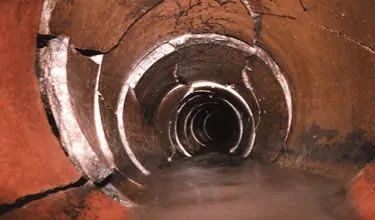
Got more questions about sewers getting clogged? Here are our frequently asked questions about the topic!
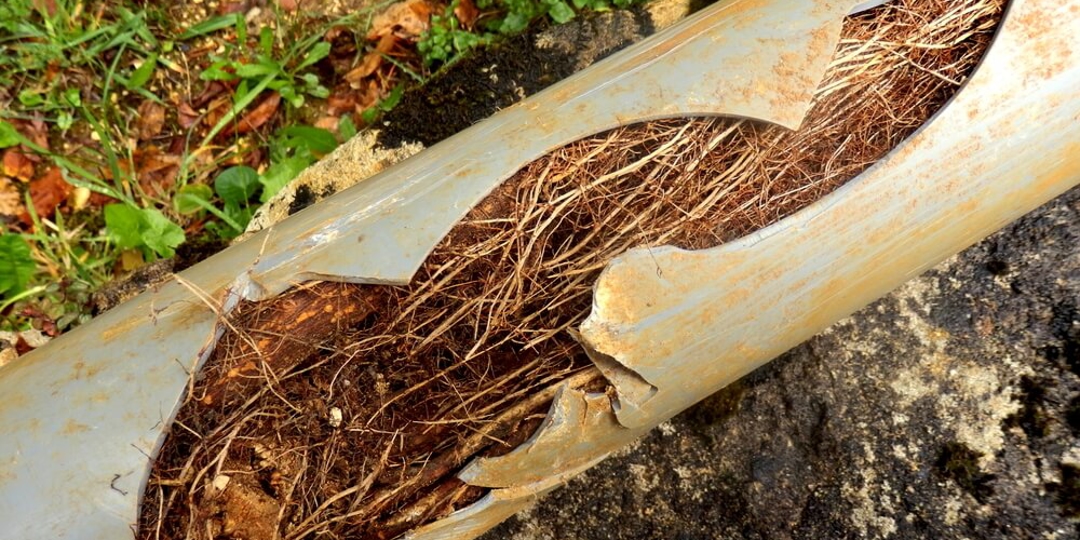
A collapse can result in blockages, backups of waste and wastewater into the home, overflow of raw sewage, health hazards, property damage, and environmental impact.
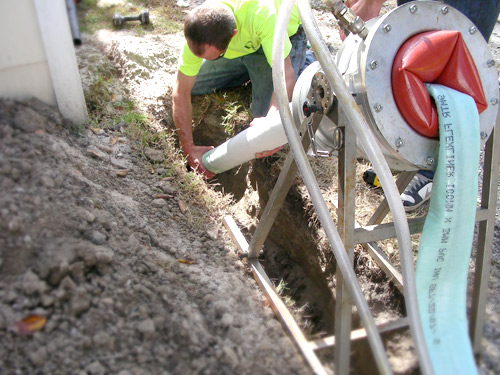
Yes, some drains can be repaired without digging up using drain cleaning, relining, and hydro jetting.
However, not all drain issues can be resolved without excavation, and in some cases, digging up the pipes may be necessary to repair or replace the damaged pipe.
The method used will depend on the extent and location of the damage, as well as other factors.
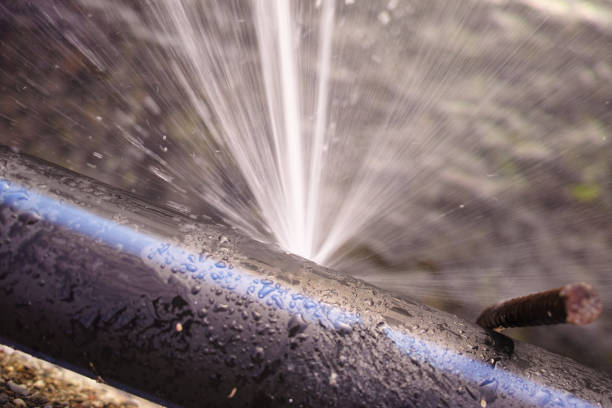
To determine if your main sewage lines are leaking, look for the following signs: strong sewer gas, frequent backups, increased water bills, and standing water near the pipes.
Conclusion
It's critical to detect a collapsed sewer line as soon as possible due to the expense of repairs and the discomfort they cause.
You might be able to save money by identifying a collapsed sewer line when it is still relatively early on.
If you suspect a soil pipe leak, it is important to contact a plumber for an inspection and repair quickly.
It's great to be listed on NoDig
-
Join a network of verified sewer repair specialists
-
Get recognized
-
Update your business information
Unlock your listing in minutes.
